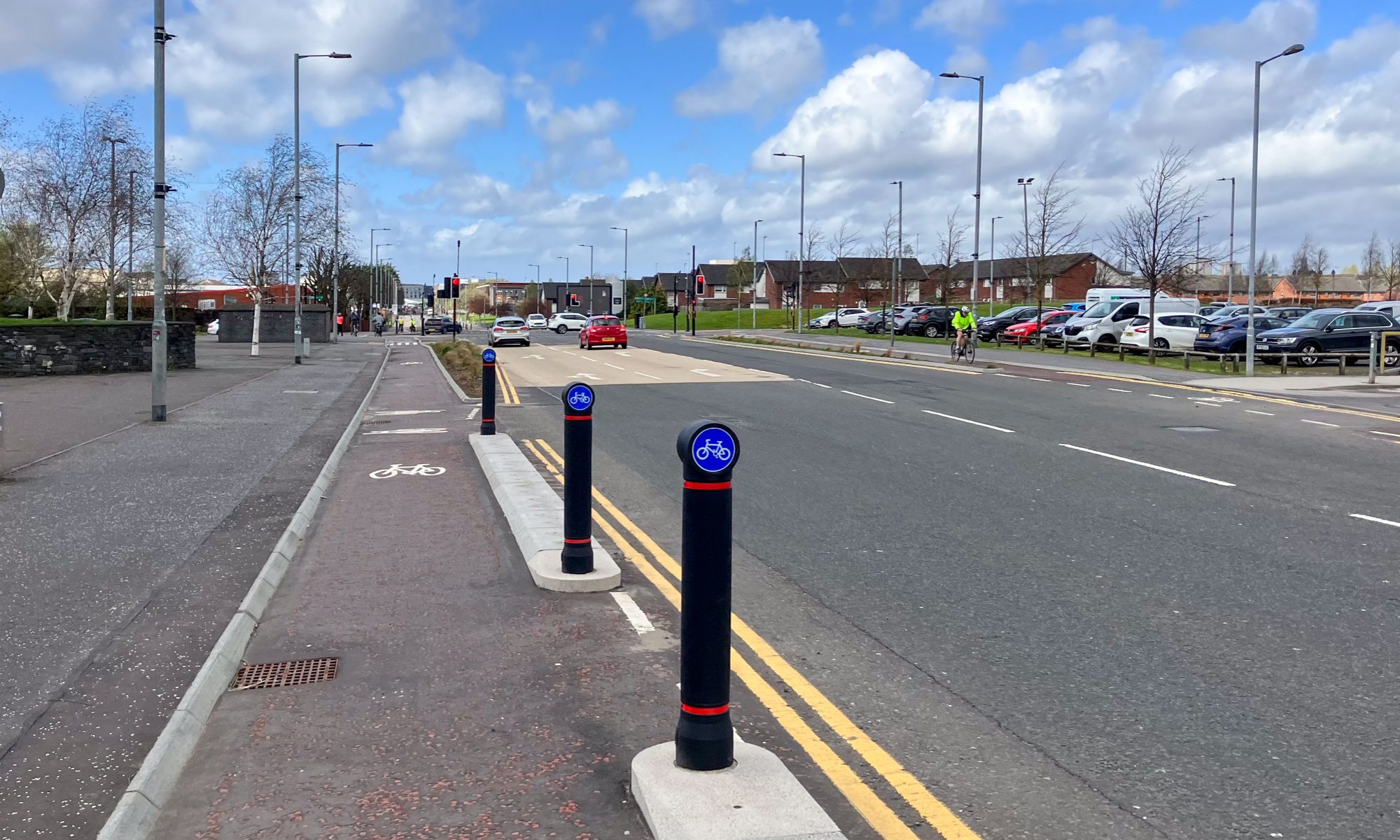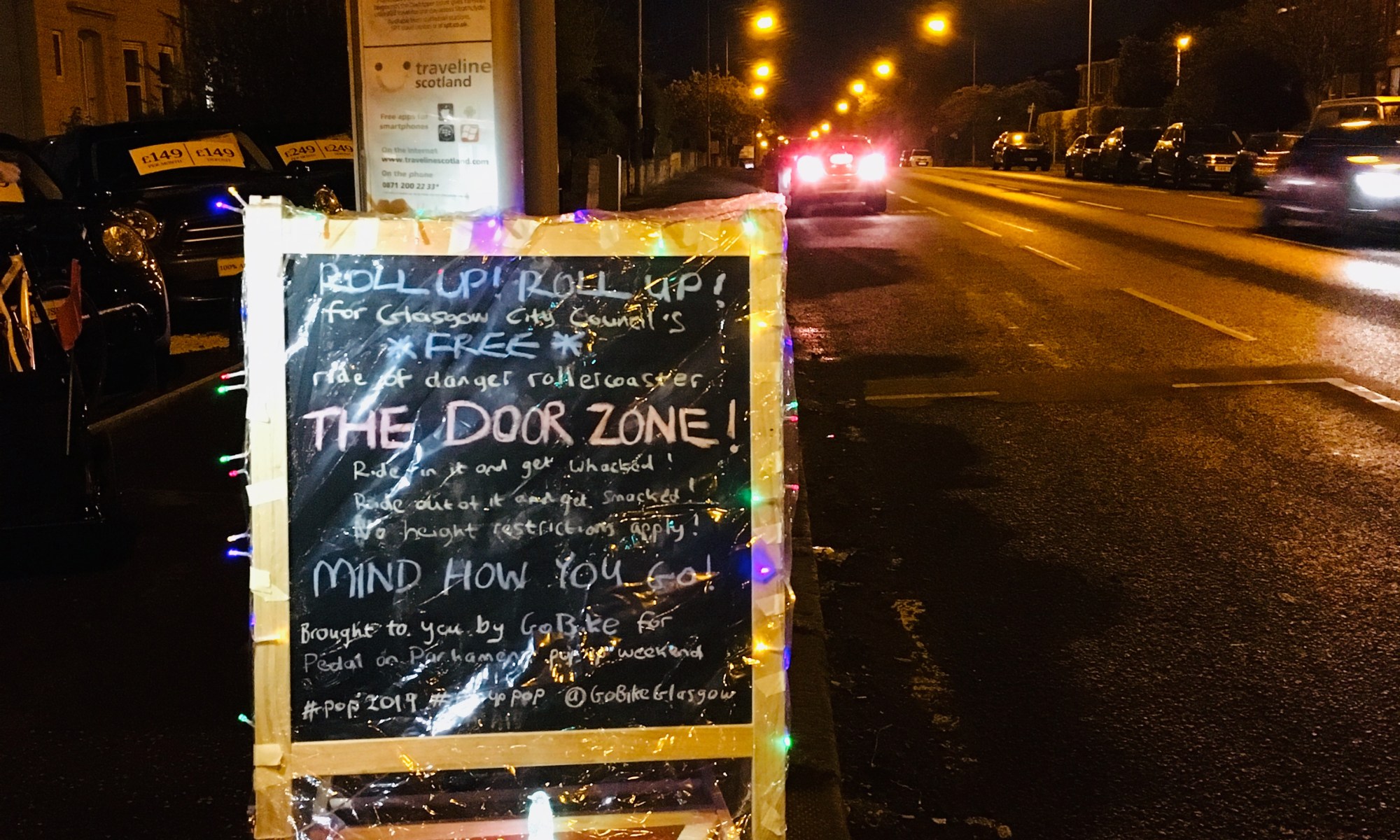GoBike’s Board of Shame is out and about for Pedal on Parliament’s pop-up weekend. Many of you found it yesterday on Kilmarnock Road in the nasty cycle lane painted in the door zone. We have written to the council off the back of the protest. It read:
“Roll Up! Roll Up! For Glasgow City Council’s FREE ride of danger rollercoaster THE DOOR ZONE!! Ride in it and get whacked! Ride out of it and get smacked! No height restrictions apply! Mind how you go! Brought to you by GoBike for Pedal on Parliament pop up weekend. #pop2019 #popuppop @gobikeglasgow
We have written to the council off the back of the protest.

Dear Glasgow City Council,
You may be aware that the GoBike Board of Shame was out on Kilmarnock Road last weekend as a part of the Scotland wide Pedal on Parliament protests.
We wanted to highlight the ever remaining danger that the painted lanes on Kilmarnock Road post to cyclists who appear to be expected to have to cycle in the dangerous door zone area of the road.
A door zone is the area beside parked cars taken up by the opening of a car door. People on bikes are advised not to cycle in the door zone as they risk injury from the impact of hitting an open door, or being pushed into traffic causing further significant risk. Dooring injuries are unfortunately very common and although most go unreported, the Department for Transport found that between 2011 and 2015 there were 2009 people injured (5 of where were fatalities) when cycling in the door zone.
Painted lanes in door zones cause a host of danger and stress to people cycling. The Highway Code states “Leave plenty of room when passing parked vehicles” (section 67), but should anyone choose to leave the painted lane and cycle out with it on the carriageway, they are routinely subjected to aggressive driving and punishment passes from motorists who misunderstand the cyclists motivation for their road position.
Not only are the cycle lanes on Kilmarnock Road painted in the door zone without a buffer, but they are also much narrower than mandated in the council’s accepted design guidance Cycling By Design. Even painted lanes that are not in the door zone do not provide any protection from motor vehicles, in fact they have been shown to be very poor as they encourage dangerous close passes (a). The cycle lanes on Kilmarnock Road also encourage people using them to cycle very close to side roads rather than a recommended distance away.
It is widely accepted in safe design for cycling that if parking is to be retained on main roads, the cycle lane should run between the footway and the parking, not between parking bays and the road. It is also essential that a buffer zone is incorporated between the parking area and the cycle lane.
We know that these door zones are an issue that has been highlighted to GCC many times over the twelve years since their installation and we feel that now, when GCC are moving to support active travel, is the time that they are tackled.
Thank you and we look forward to hearing from you.
(a) Science Direct ‘How much space do drivers provide when passing cyclists? Understanding the impact of motor vehicle and infrastructure characteristics on passing distance.’
Have you spotted the Board of Shame’s next pop up location yet??


